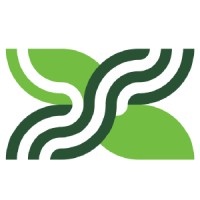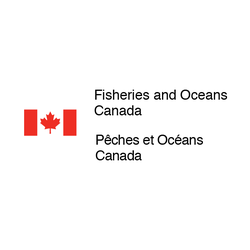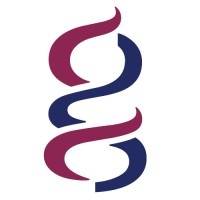
RDAR — On-Farm Climate Action Fund (OFCAF)
At a glance
- Maximum amount : 75,000 $
- Minimum amount : 2,500 $
- Up to 85% of project cost
- Closing date : January 31, 2025
- Agriculture, forestry, fishing and hunting
- Alberta
- For-profit business
- Sole proprietorship
- $ 25,000 minimum revenue
- All organization sizes
- Startups
Overview
Activities funded
The RDAR On-Farm Climate Action Fund (OFCAF) supports various activities aimed at improving agricultural sustainability and reducing greenhouse gas emissions. The eligible activities focus on adopting specific beneficial management practices (BMPs) on farms in Alberta.
- Improving Nitrogen Management through agronomic services, equipment rentals for fertilizer application, and soil sampling and analysis.
- Increasing Adoption of Cover Cropping by providing financial support per acre for adoption and related costs.
- Expanding the Adoption of Rotational Grazing through the development of grazing management plans, installation of fencing and water infrastructure, and planting of legumes and forages.
Eligibility
Eligibility for this grant is determined by specific requirements related to the applicant's profile and proposed activities.
- The applicant must be an active producer, including proprietorship, corporation, or registered partnership, that can demonstrate a minimum of $25,000 of gross farm income in Alberta.
- The applicant must work with a Professional Agrologist (PAg) or Certified Crop Advisor (CCA) to develop a BMP Action Plan based on agronomic advice and detailing cost differences from usual practices.
- The applicant must be headquartered in Alberta and apply funds only to lands in Alberta.
- The project must have a minimum eligible project cost of $2,500.
- The applicant must pay 100% of the costs upfront, as all payments will be considered taxable income.
- Landlords whose only interest is in the land but are not raising crops or livestock are ineligible.
- Funding must be for the new adoption of BMPs; farmers cannot receive funding for a BMP already in use or a project funded from other sources.
Who is eligible?
Eligible applicants include active producers, such as proprietorships, corporations, or registered partnerships, who can demonstrate a minimum of $25,000 of gross farm income and are headquartered in Alberta.Who is not eligible
This grant excludes certain companies and industries based on their main activities and land interest. The restrictions ensure that funds are provided to active producers genuinely looking to implement new sustainable practices on their farms.
- Landlords whose only interest is in the land and are not actively raising crops or livestock.
- Entities where the Beneficial Management Practices (BMP) are already in use.
- Projects where costs are funded from sources other than OFCAF.
Eligible expenses
Eligible projects for this grant focus on the adoption of on-farm Beneficial Management Practices (BMPs) to improve environmental sustainability and efficiency. These projects aim to lower greenhouse gas emissions, increase soil health, and enhance biodiversity.
- Improving nitrogen management through agronomic services, soil sampling, and analysis.
- Increasing the adoption of cover cropping by providing resources for seed and custom seeding costs.
- Expanding the adoption of rotational grazing by developing grazing management plans, and installing necessary infrastructure like cross fencing and water systems.
- Supporting additional activities like outreach, education, and training related to BMP adoption.
Eligible geographic areas
This grant is specifically available to producers operating and headquartered in Alberta, Canada. Eligibility is focused on supporting agricultural activities in this region.
- Producers headquartered in Alberta, Canada.
- Activities and lands located within the province of Alberta.
How to apply
Determine Eligibility
- Ensure you are an active producer based in Alberta with a minimum of $25,000 in gross farm income.
- Verify that you're proposing new BMP implementations not previously practiced on your farm.
Develop BMP Action Plan
- Engage with a Professional Agrologist (PAg) or Certified Crop Advisor (CCA) to create your BMP Action Plan.
- Include agronomic advice and cost differences from existing practices in your plan.
- Attach labelled maps with project field boundaries using air photos or images.
Prepare Application
- Gather all necessary documentation including evidence of Alberta headquarters and gross income.
- Ensure your project meets the minimum cost of $2,500 and involves new BMP installation.
Application Submission
- Complete all sections of the application form as directed by RDAR.
- Upload all required documents through the submission process outlined by RDAR.
Confirmation and Follow-Up
- Receive confirmation of your application submission from RDAR.
- Maintain communication for any necessary follow-up actions or requests for additional information.
Additional information
The OFCAF program uses an application and approval process, where expenses must be pre-approved and documented for reimbursement. Payments for approved projects are considered taxable income and have specific submission deadlines.
- Applications from 2023 not reviewed due to lack of funds must be re-submitted.
- Projects planned after April 1, 2024, must be pre-approved in writing.
- Invoices must include Legal Land Descriptions (LLDs) and proof of payment.
- Applications close once funding is fully allocated.
- The same BMP cannot be funded on the same field in 2024 if it was funded in previous years.
- Maximum reimbursement is 85% of eligible costs, up to $75,000 over the three-year period from April 1, 2022 to March 31, 2025.
- Landlords without a direct interest in raising crops or livestock are ineligible.
- Reimbursements are made by March 31, 2025.
Contacts
Frequently Asked Questions about the RDAR — On-Farm Climate Action Fund (OFCAF) Program
What is the RDAR — On-Farm Climate Action Fund (OFCAF)?
How much funding can be received?
Who is eligible for the RDAR — On-Farm Climate Action Fund (OFCAF) program?
What expenses are eligible under RDAR — On-Farm Climate Action Fund (OFCAF)?
Who can I contact for more information about the RDAR — On-Farm Climate Action Fund (OFCAF)?
Where is the RDAR — On-Farm Climate Action Fund (OFCAF) available?
Is the RDAR — On-Farm Climate Action Fund (OFCAF) a grant, loan, or tax credit?
More programs like this

Aquatic Habitat Restoration Fund (AHRF)
Fisheries and Oceans Canada (DFO)
Capital Retrofits
Government of Alberta
Genomics Data Connect: Accelerating Agriculture Innovation
Genome Alberta
Alberta Agricultural Societies Program
Government of Alberta
Genomic Applications Partnership Program (GAPP) — Alberta
Genome Alberta
Growing Greenhouses Program
Government of Alberta
RDAR — Agriculture Funding Consortium (AFC)
Results Driven Agriculture Research (RDAR)
Water Program — On-farm irrigation stream
Sustainable Canadian Agricultural Partnership (SCAP)
Agriculture Job Connector
Government of Alberta